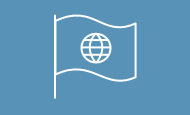Press Release:
Amnesty and HRW Attempt Pseudo-Investigations in Gaza
Media reports indicate that officials from Amnesty International and Human Rights Watch (HRW) have attempted to enter Gaza in order to conduct “independent investigations” into the July 2014 conflict. These reports (see Amira Hass, “Israel bars Amnesty, Human Rights Watch workers from Gaza,” Haaretz, Aug. 18, 2014 and Noah Browning, “Rights groups say Israeli ban hinders Gaza investigation,” Reuters, Aug. 18, 2014) repeat NGO claims to the effect that they possess “the requisite professional military knowledge to independently evaluate claims being made by both the Palestinians and Israelis.”
In contrast, the evidence clearly demonstrates that neither Amnesty International nor HRW is capable of conducting independent, unbiased, and credible investigations, particularly in the context of intense conflict, and environments where information is strictly controlled and manipulated by groups like Hamas. Neither NGO abides by international fact-finding standards such as the Lund-London Guidelines adopted by the International Bar Association. In addition to the lack of objectivity, their research processes are entirely non-transparent and not subject to accountability or independent verification.
Officials from Amnesty and HRW are not trained professionals in criminal and military investigations and forensics, do not possess the requisite expertise, and do not produce findings that would be admissible in legal proceedings. Their main practice consists of conducting unverifiable “witness” interviews, claiming to ascertain whether Palestinian fighters were present in the location of Israeli operations. (This determination is essential to resolve questions of military necessity and compliance with international law.) Neither group discloses the extent to which its staff is shadowed by Hamas and whether Hamas minders select interview subjects. Such practices were among the factors that discredited the NGO-based Goldstone Report on Gaza, published in 2009. More importantly, their activities, which do not adhere to professional standards, may jeopardize genuine investigations by tainting evidence and witnesses.
Indeed, Amnesty’s head of field investigations, Donatella Rovera, acknowledges the unreliability and limitations of NGO investigations in conflict zones such as Gaza: “In Gaza, I received partial or inaccurate information by relatives of civilians accidentally killed in accidental explosions or by rockets launched by Palestinian armed groups towards Israel that had malfunctioned and of civilians killed by Israeli strikes on nearby Palestinian armed groups’ positions. When confronted with other evidence obtained separately, some said they feared reprisals by the armed groups.” (April 2014)
In the 2009 and 2012 Gaza conflicts, HRW and Amnesty allegations included numerous factual, legal and military claims that contained major technical errors and were clearly contradicted by evidence produced by independent researchers. For instance, Amnesty and HRW accused Israel of “wantonly and deliberately” destroying Gaza’s primary flourmill in an airstrike. Photographs and a summary of events released by both the UN (UNITAR) and the IDF refuted the NGOs’ version of events and clearly showed that the mill was accidentally hit by artillery during a firefight with Hamas combatants and not by a deliberate F-16 strike as claimed. Similarly, Robert Hewson, editor of Jane’s Air-Launched Weapons, remarked that “Human Rights Watch makes a lot of claims and assumptions about weapons and drones, all of which is still fairly speculative.”
Despite the façade of professionalism and expertise and the “halo” surrounding these NGOs, the intended audiences for Amnesty’s and HRW’s current “investigations” – journalists, UN officials, diplomats, and the public – should treat any “conclusions” with the skepticism they deserve.
For more information see “Experts or Ideologues: Systematic Analysis of Human Rights Watch,” The Goldstone Report ‘Reconsidered’, and Best Practices for Human Rights and Humanitarian NGO Fact-Finding.

